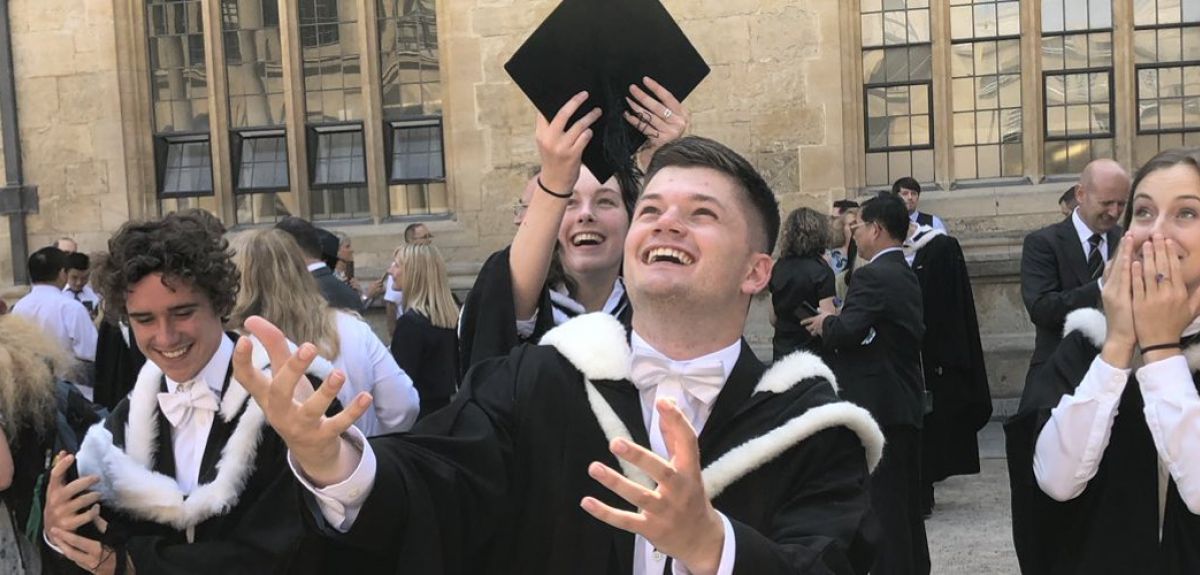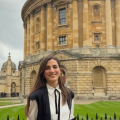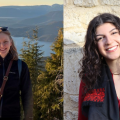
Building on our pandemic experiences: Joe Wilson, medical student
Throughout Trinity term we will feature students and staff who contributed to the University’s COVID response - hearing about what they have done during the pandemic, and what they plan to take away from the last two years. This time we chat to Joe Wilson, a sixth-year medical student at Oriel College who helped set up and manage the University’s Early Alert Service.
Joe has recently finished his finals and he is now based in the Dunachie group doing COVID immunology research. In August he will move to London to train as an academic foundation doctor at King’s College Hospital.
An early-career pandemic
“Throughout medical school before COVID, we always talked about the fact that there was always a very real potential for a pandemic, and I think that a lot of people were putting their money on it being a coronavirus that was going to be the cause of it. Everyone always talks about flu and Spanish flu and swine flu.
“But looking back to SARS (severe acute respiratory syndrome) and MERS (Middle East respiratory syndrome) 15 years ago, I think it was a question of when a coronavirus pandemic was going to happen, rather than if. And I think globally, we could have been better prepared for it, much better prepared for it.
“I didn't expect to be involved in it so early in my career. I hope I don't have to do another pandemic in my professional career that would be quite nice. I’d quite like to tick that box off now.
Establishing the University’s testing service and vaccination centres
“What I'm most proud of throughout the pandemic is the way that Oxford put together its Early Alert Service. It was put together very quickly in the summer of 2020 and it just became a much bigger operation than I think we ever thought it would be. I think in part thanks to its initial success, and we realised actually it was doing a really good job of limiting infection within colleges, departments, workplaces, for staff and students alike, but also with additional variants that kept coming and coming, and the amount of COVID that was just around.
“And then also using the University Club and the Iffley Road Sports Centre for vaccinations and that was something I was really proud of. As one more jab in a person’s arm, it does make a small but very real difference.
A steep learning curve
“I think the biggest thing I got from working with the Early Alert Service was it really built on my ability to manage a team. I think we've all done team building exercises before and led small teams but just on the medical student side that we had working with the Early Alert Service in the pods doing the consultation and swabbing, we had 80 students and at the very beginning, if I'm honest, I felt a little bit overwhelmed having responsibility for all these staff.
“It was kind of trial by fire and it was a steep learning curve for me, but I now feel much more confident if I was asked to lead a team again and as I move to more clinical roles now from this summer, I will feel more comfortable working as part of a larger team, but also having to lead teams when I need to, from the experiences that I've had at Oxford throughout the pandemic.
Resolving issues in-person
“I think everybody adjusted very well to working from home and doing a lot of virtual meetings, conversations, troubleshooting etc – and I think there's certainly a continued role that virtual meetings will play, especially in places like Oxford where we have such global collaborations.
“But what I've realised since returning to the office and having more of these conversations in-person is that actually when you do it over Zoom or Teams you never really got to the crux of problems. It’s only now when you sit down and you have a cup of coffee with someone you really get to the root of the problem you're both trying to solve and then it's much easier to build solutions, it feels much more organic.
“It's a much nicer working, learning environment too, to have these people around you again rather than just on a silver screen and so that's what I'm really loving about being back in the office.”
 Student story: Finding space for Kosovo at Oxford
Student story: Finding space for Kosovo at Oxford
 Oxford students shortlisted as McCall MacBain Scholarship finalists
Oxford students shortlisted as McCall MacBain Scholarship finalists
 Student story: My time at Oxford has been deeply transformative
Student story: My time at Oxford has been deeply transformative
 Welfare blog: Dealing with imposter syndrome
Welfare blog: Dealing with imposter syndrome
 Student story: Rowing sabbatical officer
Student story: Rowing sabbatical officer